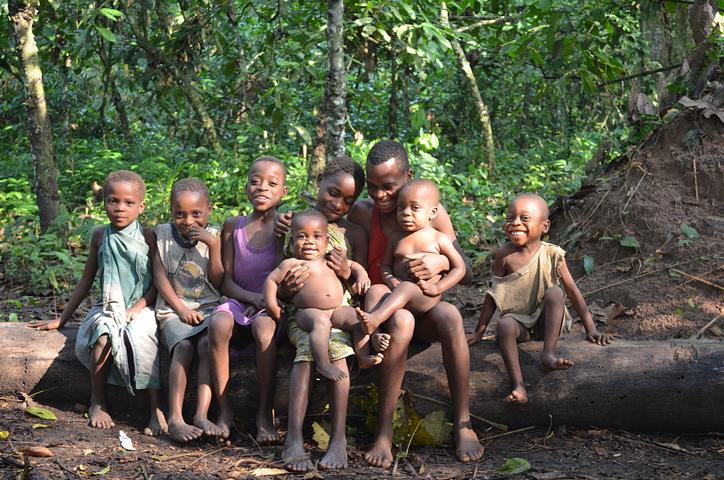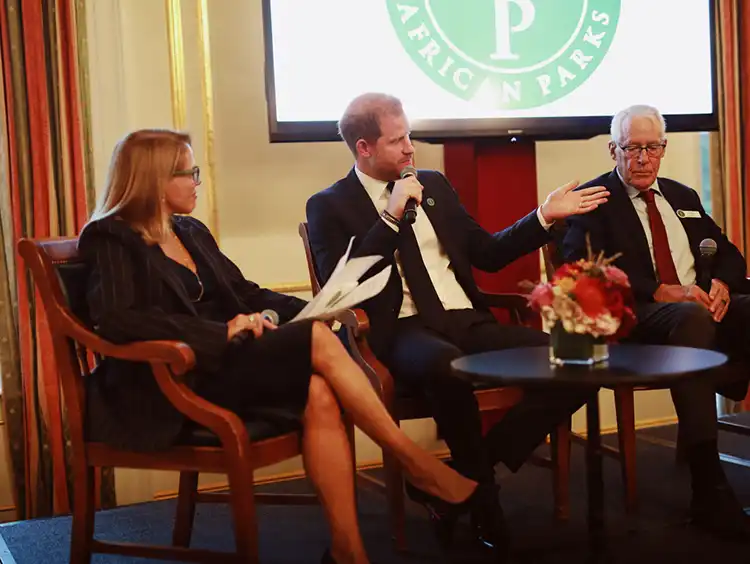
Investigation confirms abuses against Baka people in Congo, sparking global scrutiny
By
An independent investigation into human rights abuses at Odzala-Kokoua National Park in the Republic of Congo has confirmed multiple cases of violence against Indigenous Baka people by guards employed by African Parks, a conservation charity whose board includes Prince Harry.
The investigation, conducted by Cherie Blair’s law firm Omnia Strategy, followed complaints from human rights group Survival International and a major exposé by the Mail on Sunday. The probe reviewed reports of beatings, torture and sexual violence allegedly carried out over a period of years by park rangers on the Baka, whose ancestral lands were absorbed into the national park.
‘African Parks are killing us slowly. We’re suffering so much that we might as well be dead,’ one Baka man told journalist Ian Birrell during the Mail on Sunday investigation.
Survival International’s director Caroline Pearce called the findings damning, saying: ‘Baka men and women have been beaten, tortured and raped by rangers managed and paid for by African Parks. The charity has known this for years, but only after we complained to Prince Harry, and the ensuing global media storm, did they commission this “independent investigation”.’
Pearce criticised African Parks’ refusal to make the report public and accused the organisation of clinging to a ‘racist and colonial model of conservation’ that excludes Indigenous people from their land. She called on governments, donors and celebrities, including Prince Harry, to withdraw support.
In response, African Parks acknowledged that ‘in some incidents, human rights abuses have occurred’ and expressed ‘deep regret’ for the pain caused. The charity, which manages 22 protected areas across Africa, said it accepted the investigation’s recommendations and would strengthen safeguards, human rights training, and community engagement.

‘We are committed to addressing the shortcomings that have been identified,’ African Parks said in a statement, highlighting new measures including an Indigenous Peoples Plan for Odzala, strengthened partnerships with local human rights NGOs, a human rights impact assessment, and the creation of an independent grievance panel overseen by African legal and human rights experts.
African Parks emphasised the complexity of managing conservation areas like Odzala — a 1.4-million-hectare forest ecosystem facing intense threats from poaching, illegal logging and mining — but acknowledged that past systems ‘were insufficient for the level of responsibility given to us’.
As debate grows over conservation models that displace Indigenous peoples, the Odzala case has cast a harsh spotlight on the global conservation sector and its celebrity supporters. For the Baka, however, the issue remains deeply personal. As Pearce put it: ‘The Baka are the forest’s best guardians — and they are fighting for their survival.’




